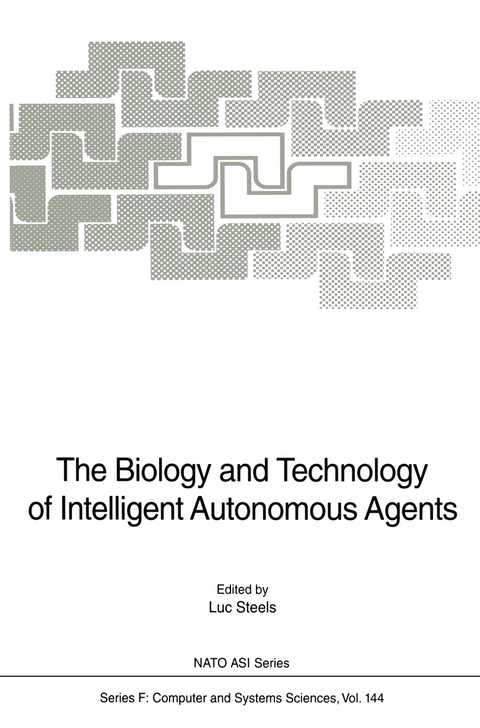
The Biology and Technology of Intelligent Autonomous Agents
Springer Berlin (Verlag)
978-3-642-79631-9 (ISBN)
The NATO sponsored Advanced Study Institute 'The Biology and Tech nology of Intelligent Autonomous Agents' was an extraordinary event. For two weeks it brought together the leading proponents of the new behavior oriented approach to Artificial Intelligence in Castel Ivano near Trento. The goal of the meeting was to establish a solid scientific and technological foun dation for the field of intelligent autonomous agents with a bias towards the new methodologies and techniques that have recently been developed in Ar tificial Intelligence under the strong influence of biology. Major themes of the conference were: bottom-up AI research, artificial life, neural networks and techniques of emergent functionality. The meeting was such an extraordinary event because it not only featured very high quality lectures on autonomous agents and the various fields feeding it, but also robot laboratories which were set up by the MIT AI laboratory (with a lab led by Rodney Brooks) and the VUB AI laboratory (with labs led by Tim Smithers and Luc Steels). This way the participants could also gain practical experience and discuss in concreto what the difficulties and achievements were of different approaches. In fact, the meeting has been such a success that a follow up meeting is planned for September 1995 in Monte Verita (Switzerland). This meeting is organised by Rolf Pfeifer (University of Zurich).
I. Lectures.- The Biology of Behavior - Criteria for Success in Animals and Robots.- Autonomy - On Quantitative Performance Measures of Robot Behaviour.- Robot Adaptivity.- Intelligence - Dynamics and Representations.- An Introduction to Reinforcement Learning.- Cognition - Perspectives from Autonomous Agents.- Lifelong Robot Learning.- Cognitive Architectures - From Knowledge Level to Structural Coupling.- II. Research Papers.- Circle in the Round: State Space Attractors for Evolved Sighted Robots.- Animal and Robot Navigation.- From Local Interactions to Collective Intelligence.- The Mobile Robot of MAI A: Actions and Interactions in a Real Life Scenario.- Fiutem Of Elephants and Men.- How Do You Choose Your Agents? How Do You Distribute Your Processes?.- The Reactive Accompanist: Adaptation and Behavior Decomposition in a Music System.- Behavior-Based Architecture with Distributed Selection.- Reporting Experiments on Integration of Learning Algorithms and Reactive Behaviour-Oriented Control Systems on a Real Mobile Robot.- Distributed Reinforcement Learning.- III. Research Notes.- A New Three-Degree-of-Freedom Spatially Mobile Robot Topology.- How Swarms Build Cognitive Maps.- Multiple Neural Experts for Improved Decision Making.- Understanding Complex Systems: What can the Speaking Lion Tell us?.- Multi-Modal Active Sensing for a Simple Mobile Agent.- Evaluating an Active Camera Controlled by a Subsumption Architecture.- AMOS: Basic Autonomy via Integrating Symbolic and Subsymbolic Mechanisms.- List of Contributors.
| Erscheint lt. Verlag | 27.12.2011 |
|---|---|
| Reihe/Serie | NATO ASI Subseries F: |
| Zusatzinfo | VIII, 517 p. |
| Verlagsort | Berlin |
| Sprache | englisch |
| Maße | 155 x 235 mm |
| Gewicht | 796 g |
| Themenwelt | Informatik ► Theorie / Studium ► Künstliche Intelligenz / Robotik |
| Informatik ► Weitere Themen ► Bioinformatik | |
| Technik | |
| Schlagworte | Agents • Artificial Intelligence • Autonomous Agents • Behavior • Intelligence • robot |
| ISBN-10 | 3-642-79631-1 / 3642796311 |
| ISBN-13 | 978-3-642-79631-9 / 9783642796319 |
| Zustand | Neuware |
| Haben Sie eine Frage zum Produkt? |
aus dem Bereich


